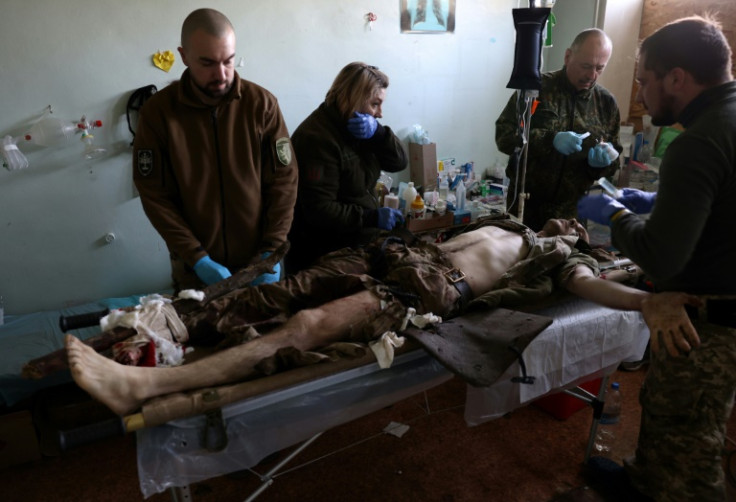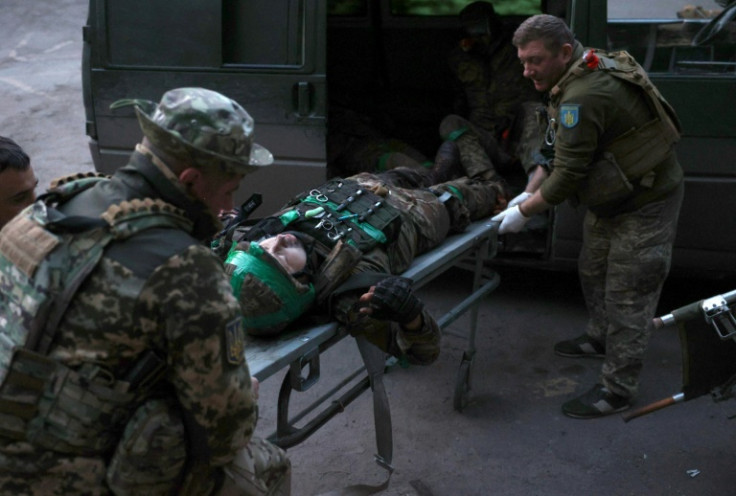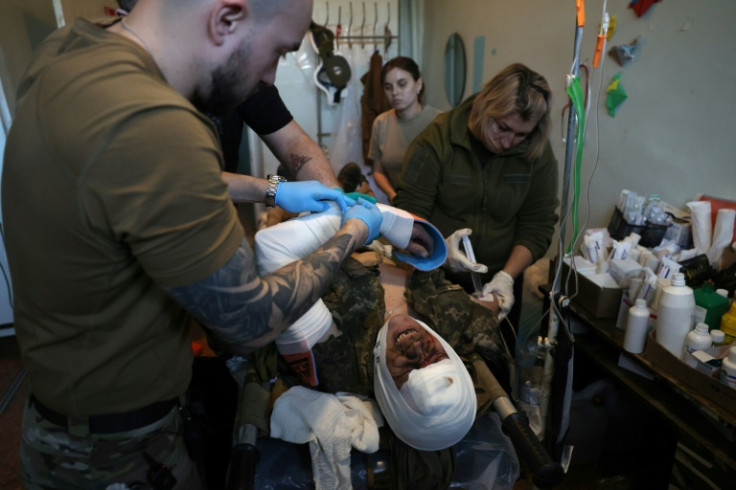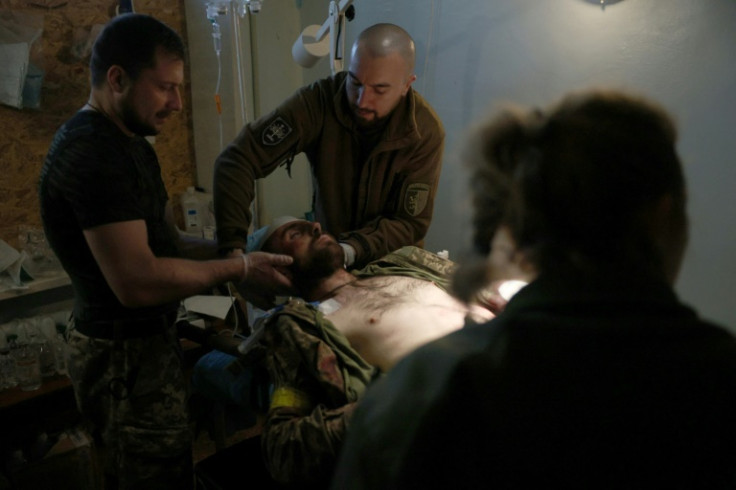Pressure On Frontline Medics As Ukraine Fights Back

Ukraine's assault against Russian positions flanking the city of Bakhmut has triggered a surge in battlefield casualties and piled pressure on frontline medics.
Accurate numbers of dead and injured are impossible to verify but Russia, which rarely confirms its losses, has admitted to losing 71 troops in three days -- a sign of intense combat.
Kyiv has not released casualty figures, but AFP journalists saw Ukrainian military medics at a "stabilisation point" near the front treating wounded soldiers.
Doctors fought to keep alive troops with head and chest wounds, severed limbs and catastrophic blood loss long enough to be transferred to hospital.
In brief pauses during a chaotic overnight shift, they explained the role of the 24th mechanised brigade's medical unit as Ukraine fights to drive the enemy out of the Donetsk region.
"This is a serious job," said a military surgeon named Bogdan, his face etched with fatigue and concern as teams intervened in clinic corridors to stabilise patients.
"It begins in the trenches, when brothers-in-arms supply tourniquets to each other, and combat medics are working," he told AFP.
He described how the troops, racing in light pick-ups and cars from the front, brave enemy fire to bring their wounded comrades for triage at the stabilisation point.
"And we also try to be as close as possible to the front line, to shorten the time of evacuation," he said.
"I don't want to say banal things, but there is no war without losses," he said. "These wounds lead to disabilities. And these are young people."
In rooms with windows, the surgeons and paramedics work by torchlight at night to avoid giving their position away to enemy spotters and drones.
On the plywood-covered floor, wads of blood-soaked bandages accumulate around gurneys and operating tables. A severed foot lies next to a bin overflowing with abandoned boots.
A doctor struggles to apply a catheter to a burly casualty with bandaged stumps where he once had an arm and a leg.
Many of the medics worked in civilian healthcare before the war. They said they are facing such intense scenes more and more since Russia's all-out invasion began 16 months ago.
"With time you learn how not to dwell on it. If you experience too much emotion, you cannot be effective. And that's why you operate more mechanically," said trauma specialist Yuriy.
"You just help one after another. But of course we have some moments. Now and again, something touches you and brings you these emotions."
Another medic, Nataliya, said she had seen colleagues succumb to stress within a month of working in a war-time hospital, while she kept going.
"I think every one of us here wishes it would end soon, because people are tired," she said.
"But we understand that it's not easy and it's not going to happen fast."
As Ukraine's long-anticipated offensive apparently gets under way, both its foreign allies and civilians have to be patient and respect the sacrifices of the troops, Yuriy agreed.
Ukrainians "wait for a counteroffensive and for when they can go back to their previous lives. But it's heavy losses. It's a lot of blood and pain," he said.
"You shouldn't be overwhelmed with euphoria. This is a huge and difficult war."




© Copyright AFP 2024. All rights reserved.





















